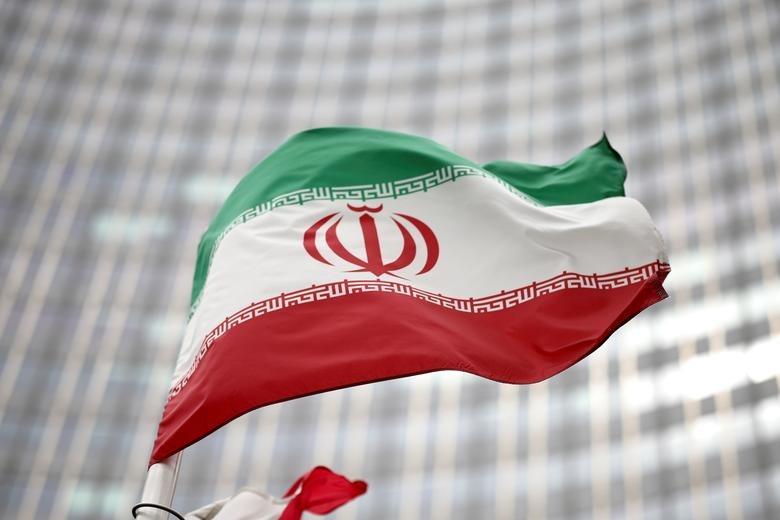 Iranian flag flies in front of the UN office building, housing IAEA headquarters, amid the coronavirus disease (COVID-19) pandemic, in Vienna, Austria, May 24, 2021. (LISI NIESNER / REUTERS)
Iranian flag flies in front of the UN office building, housing IAEA headquarters, amid the coronavirus disease (COVID-19) pandemic, in Vienna, Austria, May 24, 2021. (LISI NIESNER / REUTERS)
International efforts aimed at reviving the Iranian nuclear deal were largely stalled in 2022, and US Secretary of State Antony Blinken's remarks on Tuesday that the United States no longer considers reaching an agreement with Iran over its nuclear program a priority paint a gloomier picture for the prospects of the multilateral agreement.
At a news conference in Washington alongside United Kingdom Foreign Secretary James Cleverly, Blinken again put the blame on the Iranian side, alleging that Iran had long rejected the possibility of reviving the 2015 agreement, and warned Teheran of "consequences" for its actions.
Obviously, the Joe Biden administration is allowing the US' political differences with the Islamic state to overshadow international negotiations on keeping the nuclear deal alive. When US President Joe Biden took office in January 2021, he announced he had decided to reverse his predecessor's decision to withdraw from the Iran deal, formally known as the Joint Comprehensive Plan of Action, and would rejoin it through rounds of indirect negotiations with Iran, alongside other relevant parties, starting in Vienna in April 2021.
But the Vienna talks were suspended in March due to political discord between Teheran and Washington and were only resumed after a five-month hiatus in August. In the most recent round of talks, the European Union put forward the final text of its draft proposal for reviving the JCPOA.
Indirect exchanges of views between Washington and Teheran on the EU proposal have so far failed to produce any favorable outcome. Worse, new developments in the international arena and inside Iran itself have been driving the two parties even further apart.
Not only Iran's close ties with Russia but also the protests in Iran have drawn the ire of Washington.The latest US stance on the Iran deal sent a worrying signal that the US is backpedaling from its previous commitment that it would rejoin the multilateral agreement. The now-they-are-on, now-they-are-off talks in Vienna have already raised international concerns that the Iran nuclear deal is now dead in the water. But the Iranian foreign minister said on Tuesday that an agreement on the revival of the nuclear deal is within reach if the US stops setting new conditions and acts realistically.
As the party which imperiled the international agreement in the first place, the US should put international denuclearization above its political calculations and engage with sincerity in talks with Iran.
For the process of reviving the Iran deal to go smoothly in the new year, the bickering parties should honor the commitments they have agreed to and refrain from taking reckless and unilateral moves so as to create the right conditions for the talks to achieve a breakthrough and yield positive results.


